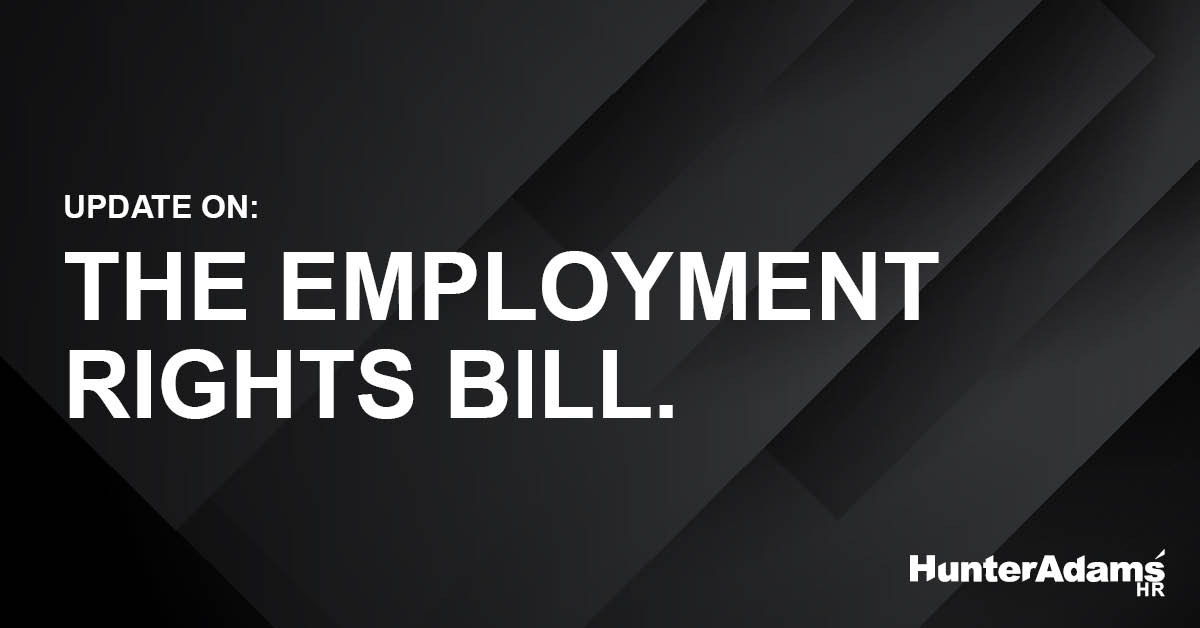The Employment Rights Bill (ERB) is moving closer to becoming law, with some of the most significant workplace reforms in recent years on the horizon. While many of the confirmed measures won’t take effect until 2026 and beyond, employers will need to start preparing now to make sure policies, contracts and practices are ready for the changes ahead.
Current status of the Employment Rights Bill (ERB)
The ERB is going through the parliamentary process, it’s currently nearing the final stages with the third reading having taken place last week.
What’s confirmed for 2026
- Measures that will be implemented in April 2026 include:
- Collective redundancy protective award – doubling the maximum period of the protective award
- ‘Day 1’ Paternity Leave and Unpaid Parental Leave
- Whistleblowing protections
- Fair Work Agency body established
- Statutory Sick Pay – remove the Lower Earnings Limit and waiting period
- Simplifying trade union recognition process and Electronic and workplace balloting
- Measures that will be implemented in October 2026 include:
- Fire and rehire
- Bringing forward regulations to establish the Fair Pay Agreement Adult Social Care Negotiating Body
- Procurement – two-tier code
- Tightening tipping law
- Duty to inform workers of their right to join a trade union
- Strengthen trade unions’ right of access
- Requiring employers to take “all reasonable steps” to prevent sexual harassment of their employees
- Introducing an obligation on employers not to permit the harassment of their employees by third parties
- New rights and protections for trade union reps
- Employment tribunal time limits
- Extending protections against detriments for taking industrial action
Areas of debate
- Unfair dismissal rights
- The Government proposes giving employees the right to claim unfair dismissal from day one of employment, with exceptions for dismissals during a probationary period if a ‘lighter-touch’ process is used. The Government favours a 9 month statutory probation period, though this is under consultation. The Lords, however, argue the right should only apply after six months of service.
- Rights to minimum hours for zero hours workers
- The Government wants zero-hours contracts to remain available but proposes giving workers rights to contracts reflecting their regular hours, fair notice of shift changes, and fair compensation for cancelled or curtailed shifts. The Lords, however, in a bid to limit employer administration, suggest these rights should only apply if workers request them.
What we think might happen
- Introduction of a statutory probationary period alongside ability to follow a ‘lighter touch’ process that is a less onerous approach for employer’s to follow to dismiss someone during the probationary period. It’s unclear at this time what that process will entail, or the length of the statutory probationary period, although it’s expected to set out how this will interact with the ACAS Code of Practice on Disciplinary and Grievance procedures.
- The ERB requires employers to make an offer of guaranteed hours to qualifying workers based on hours regularly worked over a defined reference period (which seems likely to be 12 weeks). It is expected that the reference period will be reviewed to account for seasonal fluctuations to reduce the likelihood of adversely impacting industries who increase staffing during the holiday season.
Here’s what you can be doing now
- Review Contracts of Employment in addition to policies, procedures and practices currently in place and audit these to ensure they comply with current legislation and best practice.
- If you don’t have a key People Policy in place, for example, Sexual Harassment, implement it now based on current legislation to embed consistent and fair practices.
- Review recruitment processes to ensure the hiring process is robust, fair and consistent.
- Review onboarding and probation practices and ensure performance is regularly and robustly reviewed.
- Deliver sexual harassment awareness training to employees and specific training to managers on how to handle a complaint.
- Deliver training to managers on managing conduct, performance and absence issues.
- Enhance documentation and record-keeping – particularly for dismissals, changes to contractual terms and conditions of employment, investigations, absence cases, and redundancy consultations.
These reforms will bring meaningful shifts to how employers manage people – from contracts and probation periods to parental leave and protections at work. Now is the time to review your current processes and get ahead of the changes.
If you’d like support in understanding what the ERB means for your organisation or in preparing your policies and practices, the Hunter Adams team is here to help.


